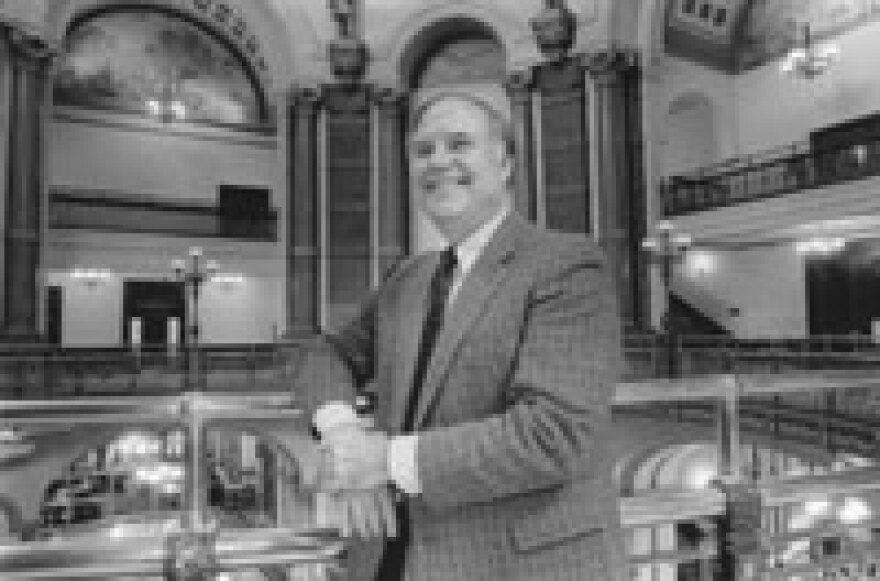The other shoe appears poised to drop on Illinois’ cash-strapped local governments.
Already reeling from new waste water permit fees imposed by the state, local officials now also face steep costs to comply with a federal mandate for election reform.
Under the Help America Vote Act, enacted last year in the wake of the Florida vote counting debacle in 2000, election authorities must:
- Upgrade outdated voting equipment so that voters are able to check for and correct errors, independently and in private, before their votes are cast.
- Equip each precinct with at least one voting machine that will allow a person with disabilities to cast a ballot in private.
- Ensure that all polling places are accessible to people with disabilities.
The reforms could cost $180 million or more, but so far Illinois has received only $44 million in federal aid. Even if Congress comes up with the full $3.9 billion promised the states — a dubious proposition — Illinois’ share could fall far short of the price tag for the changes, leaving state and local officials — and ultimately taxpayers — footing the bill.
The election law, informally known as HAVA, imposes other requirements as well, for example that persons whose eligibility to vote is questioned be allowed to cast provisional ballots subject to later verification, or that each state maintain a computerized statewide voter registration database.
But none is as costly as replacing older voting machines and guaran- teeing that people with disabilities can vote in the same fashion as other citizens.
Consider the choice of voting systems, supposed to be in place for next year’s elections, though Illinois has requested and expects to get a waiver until 2006. Despite well- documented problems with hanging and dimpled chads, the act does not ban punch cards, as long as the system provides a means for voters to catch mistakes, such as the precinct ballot counters used last year in Chicago and Cook County.
“But there’s no question that the feeling is that punch cards are an outmoded kind of system,” says Ron Michaelson, the former executive director of the State Board of Elections who chaired the panel that developed Illinois’ plan to comply with HAVA. “The intent is to tell the states that it’s a system of the past, and to give them some financial incentives to upgrade.”
Indeed, some 190,000 punch card ballots for president were not tallied here in 2000, either because voters punched for more than one presidential candidate or because the counting devices didn’t detect a vote for anyone.
While the national impact was negligible, given the 570,000-vote margin by which Democrat Al Gore carried the state, each uncounted card represented a disenfranchised voter.
So the expectation is that punch cards will go the way of the dinosaur in Illinois, to be replaced by optical scan or touch-screen devices. In an optical scan system, voters fill in ovals on the ballot to indicate their choices, much like schoolchildren taking a standardized test. Touch-screen voting is similar to using an ATM machine, with the voter pressing the names of chosen candidates on the screen.
But the costs of conversion are huge. In last November’s election, for example, Illinois citizens cast ballots at 11,768 polling places under the aegis of 102 county clerks and eight local election boards, according to the state board.
More than 80 percent of those precincts used punch card ballots, while the rest used optical scan systems. Touch-screen voting was not even authorized in the state until a few weeks ago, when Gov. Rod Blagojevich signed an election reform measure designed to comply with HAVA.
Optical scan machines run around $9,000 to $10,000 a precinct, Michaelson estimates. So installing them in the 9,500 or so precincts that used punch cards last November could cost somewhere between $85 million and $95 million. Touch-screen voting, at $4,000 to $5,000 per machine, could cost twice as much, assuming four machines per precinct.
Federal funds will cover about $35 million of replacement costs, leaving the remainder for state and local authorities.
“The law never intended for the feds to fully fund punch card replacement,” Michaelson notes. “The main concern is the next two years, that the feds won’t come up with the money to make precincts accessible.”
Such worry is not unfounded. To meet HAVA’s mandate that by 2006 people with disabilities be able to vote just like everyone else, each precinct probably must be equipped with at least one touch-screen machine, which can “talk” to visually-impaired voters through earphones. For Illinois’ almost 12,000 precincts, the bill would run $48 million to $60 million.
The state plan is counting on $50 million in federal aid next year, but Illinois is unlikely to see the full amount; while HAVA promises $1.4 billion for election reform in federal FY04, Congress likely will allocate only $500 million.
Besides voter-friendly machines, HAVA requires that polling places themselves be accessible to everyone. In 2002, though, almost 700 Illinois polling places were not, the state board reported, including one out of three in Lawrence County and one out of four in Hancock County. Even with federal help, finding accessible alternative sites in rural areas might be quite difficult.
Despite such concerns, one can’t argue with HAVA’s intent. After all, a bedrock principle of democracy is that every citizen’s vote should count.
Assuring that it does, though, could prove costly to Illinois taxpayers.
Charles N. Wheeler III is director of the Public Affairs Reporting program at the University of Illinois at Springfield.
Illinois Issues,October 2003





